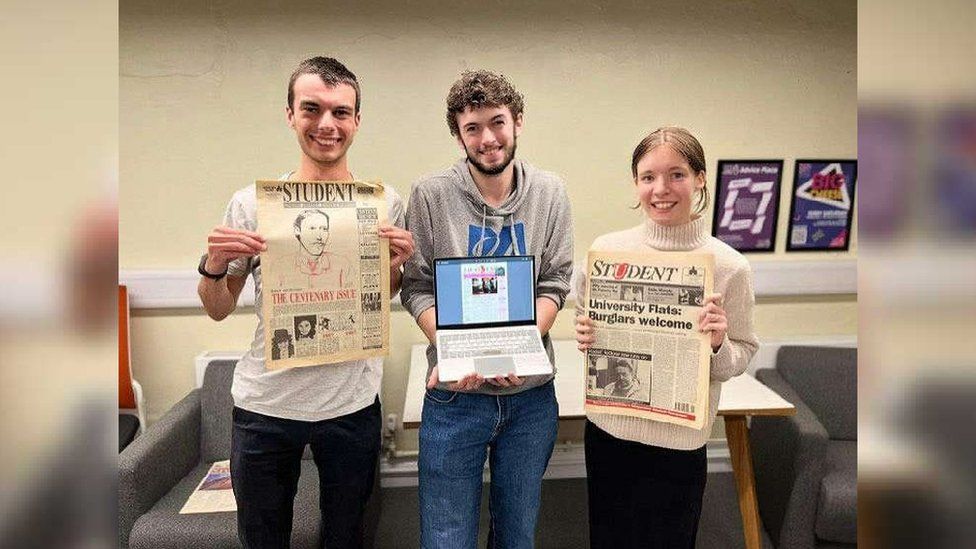
The Student’s editor-in-chief Joe Sullivan, centre, with deputy editors-in-chief Callum Devereux, left, and Rachel Hartley, right
Europe’s oldest student newspaper has been saved from closure after an online fundraiser raised more than £2,000.
Edinburgh University’s the Student was founded by Treasure Island author Robert Louis Stevenson in 1887.
It is financially independent from both the university and its students’ association, so relies on advertising and fundraising to stay afloat.
But the loss of a major advertiser earlier this year put its future in doubt.
The Student’s editor-in-chief, Joe Sullivan, told BBC Scotland News the paper was barely scraping by financially and would not have been able to continue to fund its printing costs.
Having been in print for 186 years, that was something the paper did not want to lose,” he said.
“As a community publication having a presence in print, on counters, in newsstands, across all the student parts of Edinburgh – without that visibility we might not be able to survive as a digital publication.”
Image source, The Student
Edinburgh University’s the Student was founded in 1887
A fundraiser was set up on 5 October with an initial goal of £1,000. It has now reached more than £2,000.
Joe said: “We are so overjoyed, I mean we have hit double our initial goal. We couldn’t ask for more really, we’re all really excited and really grateful.
“The donations have come in from all kinds of people but the most heartening to see has been people in the student community, members of our audience who just want to see us keep printing.”
Joe said the bulk of the donations will go towards printing costs and the rest will be used to invest in better equipment to help produce the newspaper.
Former reporters for the Student include Laura Kuenssberg, Helen Pidd, Gordon Brown, Robin Cook and James Kirkup.
The paper is currently run by a team of 25 volunteers and before the fundraiser the editors had looked at the possibility of seeking university funding.
However, it was agreed that editorial independence was more important.
“Some of our most impactful reporting has been reporting on both the university and the students’ association, not always in a positive light,” Joe said.
“Being editorially and financially independent of both allows us to really give our audience honest coverage of what is happening at the university.”








